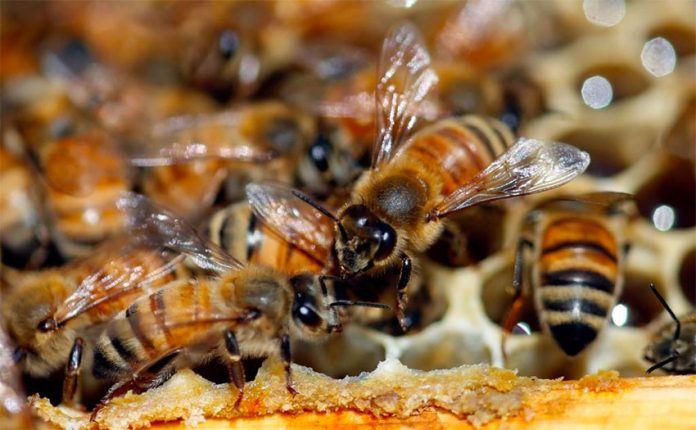The National Science and Technology Council (Conacyt) will spearhead a bee conservation project on the Yucatán peninsula to counteract the threats apiculture faces from pesticides and genetically modified crops.
At a meeting with Yucatán peninsula beekeepers at the Maya Intercultural University in Quintana Roo, Conacyt chief Elena Álvarez-Buylla said the science council is committed to looking after Mexico’s natural resources and biological diversity.
“Beekeeping is an activity that is compatible with these principles. It’s important to support local communities, universities and technological colleges in . . . the production of Mexican honey and its national distribution,” she said.
“There will be no honey if the jungle is destroyed! It is possible to regain first place in the production of the best honey in the world,” Álvarez-Buylla added.
She explained that Conacyt is speaking with communities about genetically modified crops and pesticides with a view to banning both.
“Genetically modified crops, including soybeans, involve the use of toxins that are harmful to human health and destroy beekeeping . . .” Álvarez-Buylla said.
Communities and civil society organizations will collaborate with Conacyt on the bee conservation project on the peninsula, where bees have died off en masse allegedly due to crop dusting.
“The conservation of native bees is essential for the preservation of the forests and native flora of the Yucatán peninsula. Deforestation, fumigation in industrial agriculture and especially, genetically modified crops threaten the essential foundation of beekeeping,” the Conacyt chief said in a Twitter post.
Meanwhile, lawmakers in Guanajuato have unanimously approved a law that protects bees and beekeeping.
People found to have killed bees or harmed their habitat in the state will face fines of up to 8,000 pesos (US $420).
Paulo Bañuelos Rosales, a National Action Party lawmaker and president of the Congress’s agriculture commission, said the decline of bee populations is concerning and could represent a serious risk to food security and ecosystems.
“In the face of this reality, the residents of Guanajuato can’t remain in silence. We have to take make good use of legislative tools and public resources to make a difference, to save our environment and our families,” he said.
Bañuelos explained that 42 experts contributed to the drafting of the law.
“This law wasn’t designed from a desk, we went out to consult with beekeepers, [experts] at the University of Guadalajara . . . civil society organizations, ranchers, environmentalists . . .” he said.
“This is a good law that positions Guanajuato as a state where bees are considered a priority species . . .”
Source: Milenio (sp)
